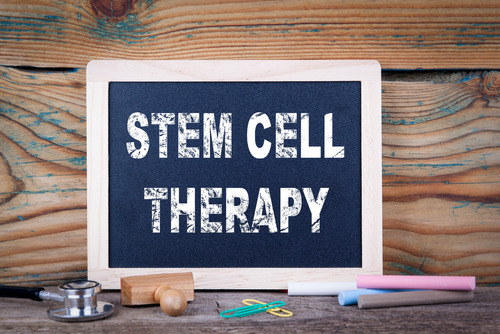Kadimastem Finishes Treating Second Group of ALS Patients with AstroRx in Phase 1/2a Trial

Kadimastem has finished treating its second group of participants in a Phase 1/2a clinical trial testing the safety and preliminary efficacy of AstroRx, an investigational stem cell therapy for amyotrophic lateral sclerosis (ALS).
AstroRx is an off-the-shelf cell therapy consisting of fully mature astrocytes — star-shaped cells derived from human embryonic stem cells — that are injected into the fluid surrounding the spinal cord to support damaged motor neurons.
Astrocytes usually help maintain a healthy environment in the brain, but often malfunction in ALS, contributing to disease progression. AstroRx was designed to compensate for diseased astrocytes and prevent the loss of motor nerve cells. The therapy’s goal is to potentially slow disease progression, improve quality of life, and extend life expectancy.
The U.S. Food and Drug Administration granted AstroRx orphan drug status in November 2018 for the treatment of ALS, a designation meant to accelerate the development of AstroRx for this rare condition.
Earlier preclinical studies showed that AstroRx delayed disease onset, maintained muscle function, and prolonged survival in mice and rat models of ALS. The treatment also was found to be safe, with no signs of toxicity.
The ongoing, open-label, Phase 1/2a trial (NCT03482050) is testing the safety and preliminary signs of efficacy of AstroRx in people with ALS. Underway at the Hadassah Ein-Kerem Medical Center in Israel, the trial is expected to enroll 21 patients, ages 18-70, with early stage disease. Recruitment is ongoing.
The trial was originally designed to test three doses of AstroRx delivered into the spinal canal: a low dose of 100 million cells, a medium dose of 250 million cells, and a high dose with two consecutive administrations of 250 million cells.
However, after promising early efficacy results from the low-dose group (cohort A), Kadimastem is seeking to amend the trial protocol. It wants the third group of patients (cohort C) to receive two consecutive injections of the low dose, instead of the originally planned medium dose. Pending positive safety and efficacy results from the first three cohorts, a fourth group (cohort D) will receive two injections of the medium dose.
Safety and tolerability are the study’s primary outcome measures. Secondary goals include changes in patients’ ALS Functional Rating Scale revised (ALSFRS-R) scores, respiratory muscle strength, hand grip strength, limb muscle strength, and quality of life.
In cohort A, the low-dose group, the therapy was found to be safe, with no serious side effects or dose-limiting toxicities. Participant had increased ALSFRS-R scores in the three months after treatment, suggesting a gain in functional abilities.
The trial has now treated all five ALS patients in cohort B, the second group, with the medium dose. Participants will be monitored for six months to evaluate the therapy’s safety and preliminary efficacy. The company expects to report the results for this group in August 2020.
“Completing treatment for the additional 5 ALS patients in Cohort B, for a total of 10 patients treated with our product in our clinical trial, serves as an additional demonstration of our ability to develop and produce high quality clinical grade cells and takes us a significant step forward in our path to bringing innovative cure to ALS,” Rami Epstein, CEO of Kadimastem, said in a press release.
“The expected completion of cohort B 6-months follow-up period will allow us to assess the safety and preliminary efficacy of [250 million] cells, compared to that of the lower dose administered in cohort A,” he added.
Kadimastem has recruited the first patient of cohort C, who all will receive two AstroRx injections of 100 million cells, separated by 2-3 months. Results from this group are expected during the first half of 2021.
“The results of the next treatment group, Cohort C, in which each patient will be treated with two consecutive injections separated by an interval of 2-3 months, will allow us to assess the possible prolonged efficacy of the repeated dose, compared to the single dose treatment provided in cohorts A and B,” said Michel Revel, founder and chief scientific officer of Kadimastem.
“The results that will be obtained from the different cohorts, will support us in the process of defining the dose and treatment regimen that will lead to most favorable results for patients over time,” Revel said.






